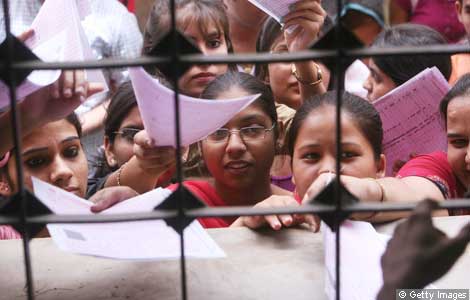 New Delhi, Jul 9: India needs to unleash second generation labour reforms and capitalise on demographic advantage for creating new firms and jobs, a government document said on Wednesday.
New Delhi, Jul 9: India needs to unleash second generation labour reforms and capitalise on demographic advantage for creating new firms and jobs, a government document said on Wednesday.
“It is imperative to use India"s unique demographic moment wisely and unleash the second generation reforms,” the Economic Survey for 2013-14 stated.
The suggestion assumes significance as the employment growth during 2004-05 to 2011-12 only 0.5 per cent compared to 2.8 per cent during 1999-2000 to 2004-05.
India with a large and young population has a great advantage. The average age of the 125 billion strong country"s population will be 29 years in 2020, even younger than the 37 years of China and the US.
Besides, the proportion of working-age population in India is likely to increase from 58 per cent in 2001 to more than 64 per cent by 2021, adding about 63.5 million new entrants between 2011 and 2016 with a large number of young persons in the 20-35 years age group.
The proportion of working-age population in India is likely to increase from 58 per cent in 2001 to more than 64 per cent by 2021, adding about 63.5 million new entrants between 2011 and 2016
Taking advantage of such an opportunity is contingent upon the progress on the human development front, the survey suggested.
According to the document, the ultimate goal of the economic policy is to create a sustained renaissance of high growth in which hundreds of millions of good quality jobs are created.
Good quality jobs, as per the survey, are created by high productivity firms, so this agenda is critically about how firms are created, how firms grow, and how firms achieve high productivity.
In present scenarios, it observed, labour laws create strong incentives for firms to avoid hiring a large number of low skill workers and an array of problems holds back the entry and maturation of new firms which protects existing businesses, even if inefficient, and limits entry and competition.
Taking a first step to revamp labour laws in a decade, the new government has planned to amend the archaic Factories Act, 1948. Earlier most governments have avoided labour reforms for fear of a backlash from the politically powerful labour lobby.




Comments
Add new comment